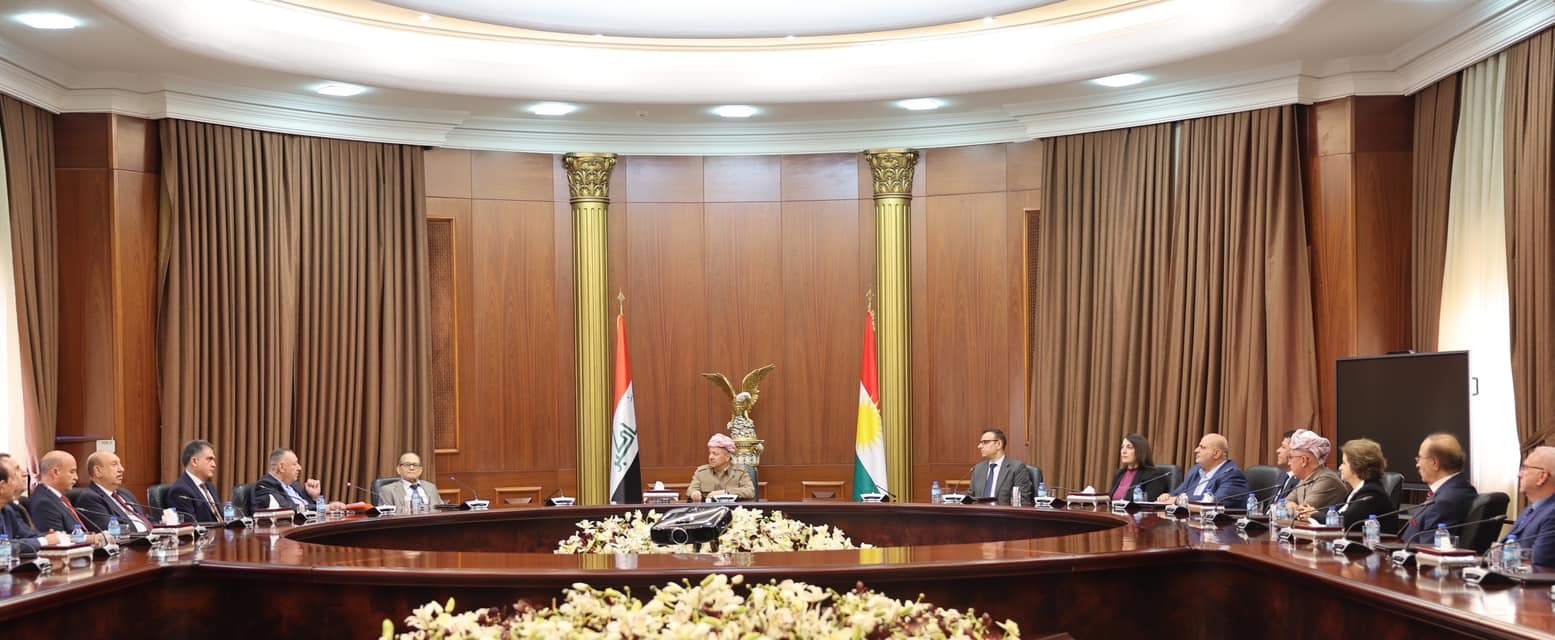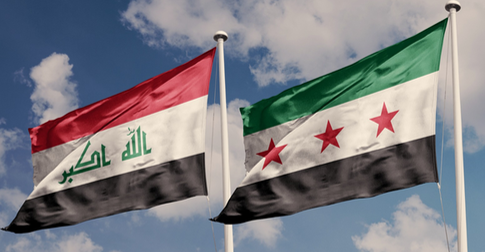Leader Barzani to advocate for Faili Kurdish rights: A symbol of sacrifice and resilience

Shafaq News/ On Sunday, Leader Masoud Barzanihighlighted the “sacrifices and national spirit” of the Faili Kurds, describingthem as a “striking example of oppression and persecution.”
According to a statement from Barzani’s office, theKDP leader met with several Faili Kurdish figures and representatives ofassociations and organizations at the Saladin Resort in Erbil, the capital ofthe Kurdistan Region.
The visiting delegation briefed Barzani on theproblems and obstacles faced by the Feyli Kurds, including “the deprivation ofrights and identity, as well as the lasting impacts of torture, displacement,and the chauvinistic policies inflicted by Iraq’s former regime.”
The delegation expressed gratitude to Barzani for“his continuous advocacy for the rights of the Faili Kurds and for his effortsto address their challenges and restore and consolidate their entitlements,”the statement added.
Barzani recognized personalities andrepresentatives of Faili Kurdish organizations and associations, expressed hisappreciation for their positions, and stressed that the Faili Kurds are “asymbol of Kurdish nationalism and sacrifice and a stark example of theinjustice and persecution practiced against the Kurdish people.” He underscoredthat they have faced “injustices due to their national identity, resulting indisplacement and hardship.”
Moreover, he reiterated that he will spare noeffort to support all the rights and demands of the Faili Kurds, according tothe statement.
About Faili Kurds
Faili Kurds, an ethnic group historically residing along the Zagrosmountains on the Iraq-Iran border, now primarily live in Baghdad and easternIraq, including Diyala, Wasit, Maysan, Basra, and the Kurdistan region. DuringSaddam Hussein's nearly 30-year rule, thousands of young Failis were forciblydisappeared, with many presumed to have died in custody or been executed inmass graves.
In the late 1970s and early 1980s, the Baathist regime launched asystematic campaign against the Failis, stripping them of citizenship andconfiscating their assets. Under Presidents Ahmed Hassan al-Bakr and SaddamHussein, Failis faced deportation, arrests, and executions.
In 2010, Iraq’s Supreme Criminal Court officially recognized theseactions as genocide, after 44 hearings that began in 2008.




